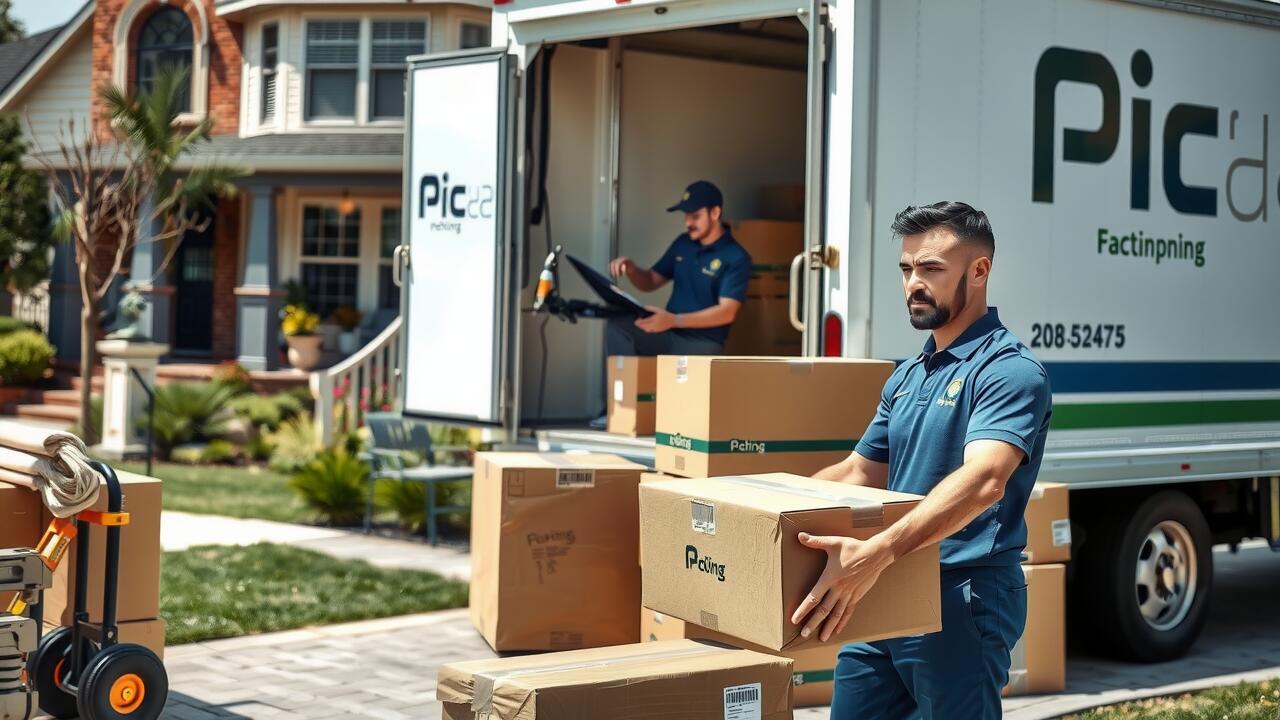
Table Of Contents
Addressing Legal and Regulatory Requirements
Navigating the legal and regulatory landscape is crucial when planning for commercial moving in Iowa, United States. Businesses must ensure compliance with local zoning laws, building codes, and licensing requirements to avoid potential interruptions to operations. Familiarizing oneself with these regulations can prevent costly fines and delays. Consulting with legal experts can also provide clarity around specific obligations that may apply to your industry.
Additionally, businesses should take into account any necessary permits needed for the relocation process. This may include notifying local authorities of the move, particularly if significant renovations will occur at the new location. Understanding the full scope of legal responsibilities is fundamental for a seamless transition. Keeping accurate records and documentation of all communications and permits will aid in creating a smooth relocation experience.
Understanding Local Business Laws
Understanding the local business laws in Iowa is crucial for a seamless commercial relocation. Each city may have specific regulations regarding zoning, permits, and licensing that can impact your move. It is essential to familiarize yourself with these laws to avoid any disruptions in your operations. Consulting with a local attorney or a business advisor experienced in Iowa’s commercial regulations can provide valuable insights tailored to your specific industry.
Commercial moving in Iowa, United States, entails adhering to state-specific tax requirements as well. This may include sales tax obligations, employee withholding tax changes, and any potential business incentives related to your new location. Researching these factors beforehand will help in minimizing complications during the transition and ensuring compliance with local authorities. Understanding these legal elements not only protects your business but also facilitates a smoother relocation process.
Updating Business Information
Updating your business information is a crucial step during any relocation process. It is essential to change your address and contact details across all relevant platforms and mediums. This includes your website, social media profiles, and directories to ensure that clients, vendors, and partners can reach you without difficulty. Failure to make these updates promptly could lead to confusion and missed opportunities, potentially impacting your business operations negatively.
For businesses engaged in commercial moving in Iowa, United States, maintaining accurate information is particularly vital due to the diverse regulatory landscape. Local laws may require businesses to file updates with state and local agencies. Keeping these records current not only bolsters your professional image but also ensures compliance with any legal requirements in your new location.
Changing Your Address and Contact Details
When relocating a business, updating your address and contact details is crucial to maintain seamless communication with clients and suppliers. This process begins with notifying postal services and updating your business registration with local and state authorities. Additionally, it’s essential to revise your online presence, including your website, social media profiles, and any online directories where your business is listed. Ensuring that all platforms reflect your new address will help clients locate you easily after the move.
It’s also wise to inform customers through email newsletters, direct mail, and social media posts about your new location. This proactive approach during the relocation process minimizes disruption in business operations. Remember that detailed communication is key to ensuring all parties involved are aware of the changes. Taking these steps seriously can lead to a smoother transition when engaging in Commercial Moving in Iowa, United States.
Preparing Your Employees
Preparing employees for a commercial relocation is crucial to ensure a smooth transition. Involving staff early in the process helps alleviate concerns and fosters a sense of ownership. Open communication about the reasons for the move and what it entails can enhance employee morale. Providing opportunities for employees to address their questions or anxiety will build trust and make them feel valued during this significant change.
Training sessions or informational meetings should be scheduled to educate employees about the logistics of the move. Sharing details such as timelines, new workspace designs, and transportation arrangements will help everyone feel more prepared. For businesses engaging in commercial moving in Iowa, United States, ensuring that employees are adequately prepared can streamline the relocation process and minimize downtime. This preparation can also reinforce a positive workplace culture, ultimately benefiting the company in the long run.
Involving Staff in the Relocation Process
Involving staff early in the relocation process is vital for ensuring a smooth transition. Engaging employees helps them feel valued and reduces anxiety surrounding the move. Regular communication about the reasons for the relocation and the benefits it will bring can foster a sense of ownership among team members. Hosting meetings or workshops allows employees to express their concerns and ask questions, making them active participants in the process.
Consider creating a relocation team that includes representatives from various departments. This approach not only enhances collaboration but also ensures diverse perspectives are taken into account. Each member can gather input from their colleagues, providing valuable insights that can influence planning decisions. Together, they can develop strategies to address potential challenges that may arise during the commercial moving in Iowa, United States.
FAQS
What are the first steps to take when planning a commercial relocation in Iowa?
The first steps include assessing your current lease agreements, understanding local business laws, and creating a timeline for your move. It’s important to engage with legal professionals to address any regulatory requirements.
How do I update my business information after relocating?
After relocating, you should update your business address, contact details, and any relevant permits or licenses with local, state, and federal authorities. Additionally, notify your customers and update your website and social media profiles.
What legal requirements should I be aware of during a commercial relocation in Iowa?
It’s crucial to understand local zoning laws, business licenses, and any specific regulations regarding your industry. Consulting with a legal advisor can help ensure compliance with all necessary legal obligations.
How can I involve my employees in the relocation process?
Involving employees can be done through regular communication, seeking their input on the move, and addressing any concerns they may have. Consider forming a relocation team that includes staff members to help facilitate the process.
What resources are available to help with a commercial relocation in Iowa?
You can utilize local chambers of commerce, relocation services, and professional moving companies that specialize in commercial moves. Additionally, online resources and business forums can provide valuable insights and support.
